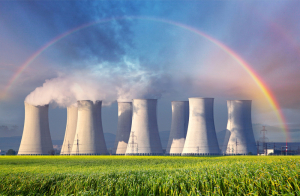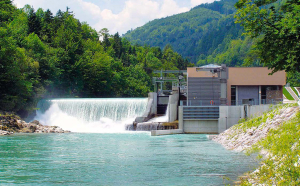PLN and Amazon to develop four solar projects in Java and Bali
State Electricity Company (PLN) and US-based multinational technology company Amazon have agreed to collaborate on four solar panel projects. The Java-Madura-Bali grid projects will be in Bali and Java islands with a total capacity of 210 megawatts (MW). The agreement was signed at the Tri Hita Karana (THK) Forum on the sideline of the G20 Summit in Nusa Dua, Bali, on November 13, 2022.
PLN focuses on the generation, transmission and distribution of electric power. The company has multiple subsidiaries within and outside the energy industry that provides different services. The subsidiaries include PT PLN Gas & Geothermal, which focuses on gas and geothermal infrastructure management; PT PLN Batubara, which focuses on coal mining business as the main resource of Steam Power Plant (PLTU); and PT Indonesia Comnets Plus (PT ICON+), that operates in telecommunications business.
Tech giant Amazon is focusing on e-commerce, cloud computing, online advertising, digital streaming and artificial intelligence. Amazon is the world’s largest corporate buyer of renewable energy with 383 projects around the world. Amazon has invested in 15 utility-scale renewable energy projects with a total capacity of more than 1,300 MW across Australia, China, India, Indonesia, Japan and Singapore. Once all of Amazon’s 383 renewable energy projects are fully operational, they will likely avoid over 18.5 million metric tons of carbon emissions each year.
The THK forum is an event that aims to mobilize US$ 30 billion in catalytic and commercial capital to support the SDG-linked projects in just energy transition, natural capital (including Blue Carbon, Blue Halo S, MPAs and mangroves), intact forest conservation, regenerative food and land use, the health of nations fund and global health architecture, MSMEs, sustainable tourism, green, resilient and inclusive digital cities and many more, including facilitating the Global Blended Finance Alliance.
Supplying energy for Amazon’s operations
The renewable energy generated by the solar projects will supply energy for Amazon’s corporate offices, Amazon fulfillment centers and AWS (Amazon Web Services) data centers that support millions of customers globally. This is a first-of-its-kind agreement for corporates to access additional, utility-scale solar projects in the country.
“PLN will build four new utility-scale power generation projects included in the 2021-2030 Electricity Supply Business Plan (RUPTL), which is the greenest RUPTL we have had in national history with the addition of 20.9 gigawatts of renewable energy power plants,” said PLN President Director Darmawan Prasodjo.
Amazon’s commitment to be the off-taker is a key enabler for these projects, allowing PLN to introduce similar opportunities for other interested organizations, unlocking more corporate renewable energy procurement options in the country. PLN’s initiative in corporate renewable energy procurement will bring Indonesia closer to meeting its goal of reaching a 23% renewable energy mix by 2025.
“PLN and Amazon teams have worked together to unlock a new way for corporates to procure renewable energy in the country. Our renewable energy projects will supply energy for Amazon’s operations in Indonesia and help advance Amazon’s goal to reach net-zero carbon emissions across its business by 2040,” said Carly Wishart, AWS Managing Director, Data Center Planning & Delivery for Asia-Pacific, Japan & China.
Challenges in renewable energy
Indonesia has a large potential for geothermal, hydropower, tidal and solar energy generation due to its geography. In addition, the country possesses 40% of the world's geothermal reserves.
Despite the high potential to generate renewable energy, the country's renewable energy development faces some challenges, including technological and regulatory, economic, social and environmental.
According to Handriyanti Diah Puspitarini, a senior researcher at the Institute for Essential Services Reform (IESR), Indonesia does not have comprehensive policies to properly promote the development of renewable energy.
“Until now, no comprehensive regulations are supporting fully renewable development related to the tariffs, incentives, subsidies and risk reduction. It has been prepared but not yet launched,” she said in September 2021 at a joint event by the Indonesia Clean Energy Forum (ICEF) and IESR.
Already have an account? Sign In
-
Start reading
Freemium
-
Monthly Subscription
20% OFF$29.75
$37.19/MonthCancel anytime
This offer is open to all new subscribers!
Subscribe now -
Yearly Subscription
33% OFF$228.13
$340.5/YearCancel anytime
This offer is open to all new subscribers!
Subscribe now






